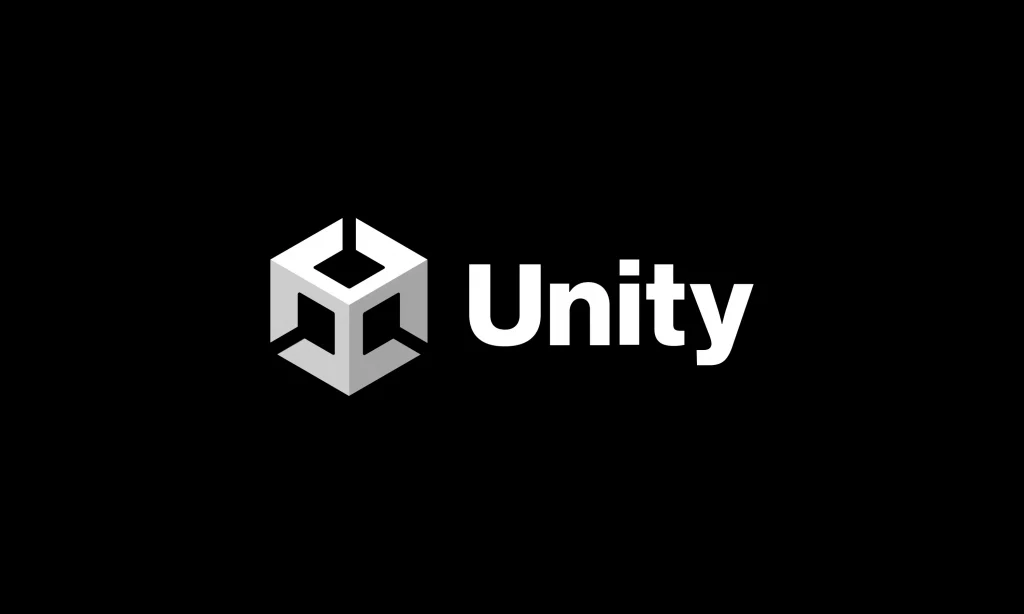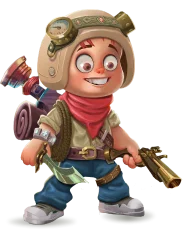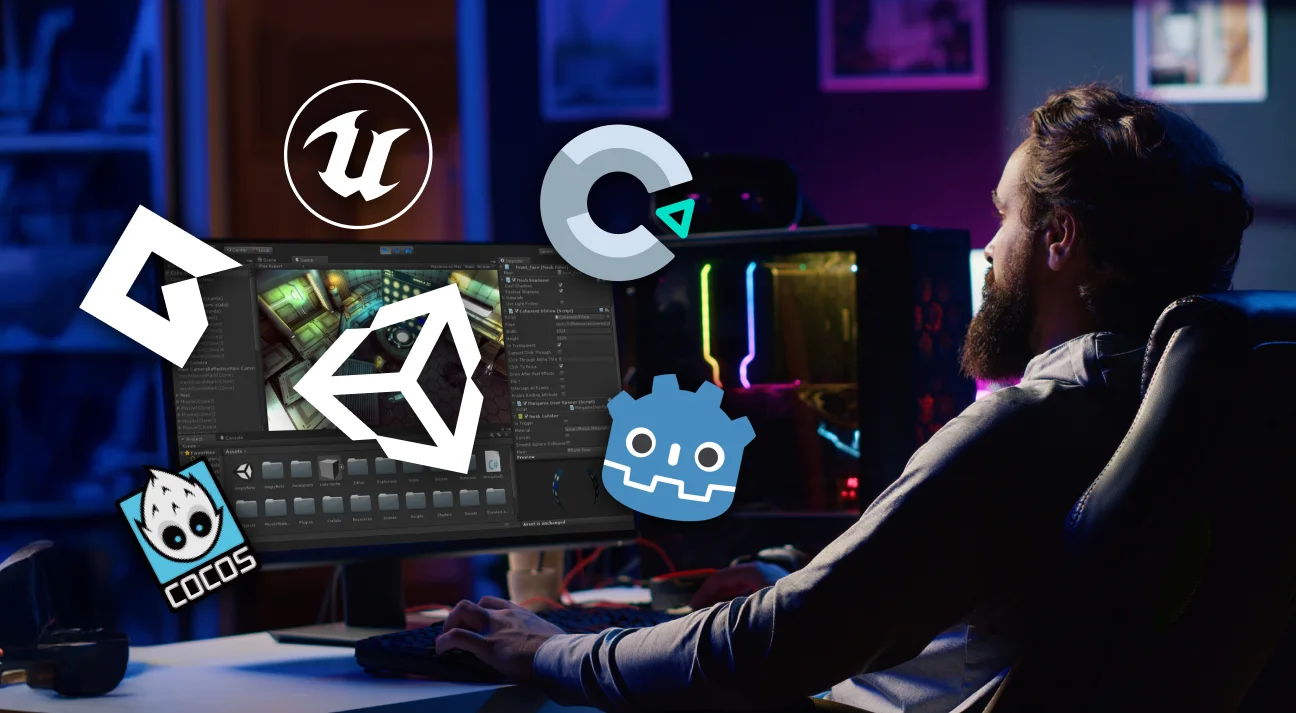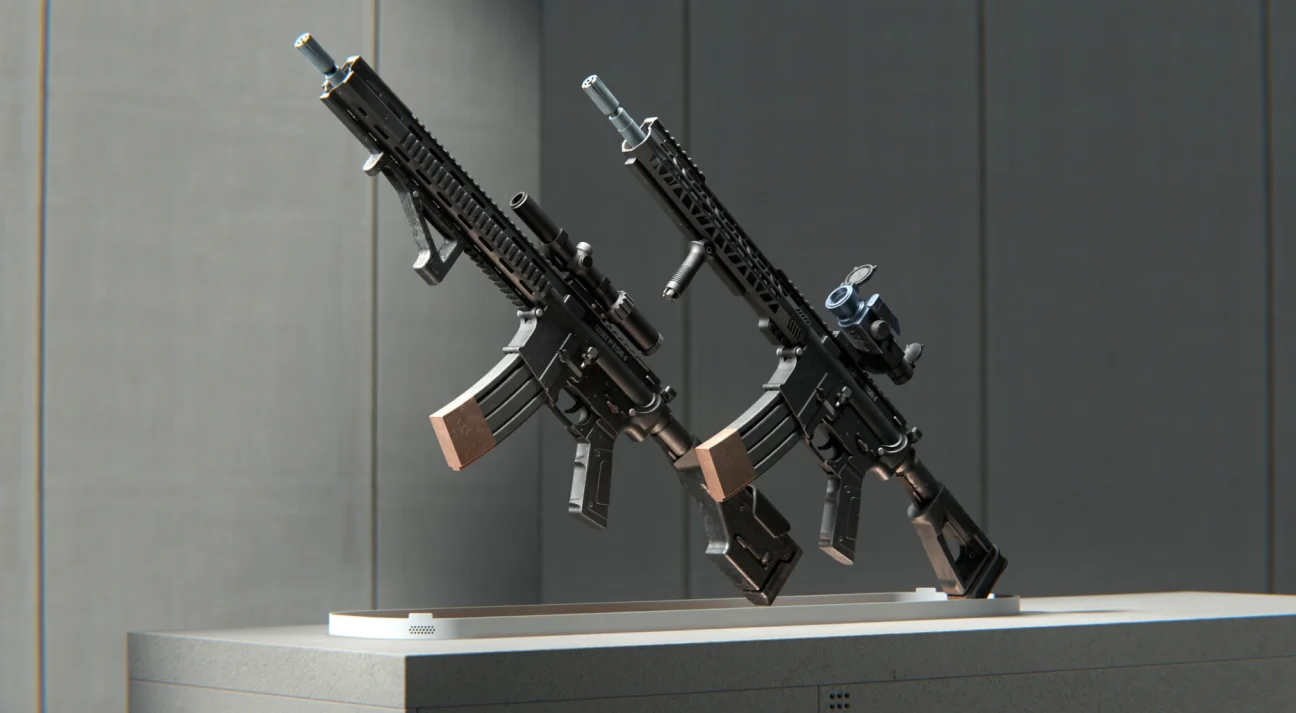
Why is Unity your Best Bet for Game Development in 2025
2023 has been a good year for game development so far. Titles like TUNIC and Hitman Sniper have raked in the big bucks and game development as an industry is on the up after the slump it witnessed back in 2019. But what is common among the two high-grossing games we just mentioned? The answer… Unity. Read on as we discuss why Unity is your ultimate bet for game development in 2023 and beyond.
An Introduction to Unity

Unity is a game engine built by Unity Technologies in June 2005. Now in its 6th iteration Unity has transcended from being an OS X exclusive to a cross-platform game development engine that supports a plethora of OSs and form factors.
Over the years this game engine has received worldwide critical acclaim thanks to its feature richness, minimal development costs, advanced gaming mechanics, and ability to bring virtual worlds to life.
Unity’s true crown jewel is its intuitive design that facilitates rapid development, dynamic animations, and photo-realistic imagery. To put things into perspective, here are the numbers that Unity has racked up over the years. According to a report by Webinarcare:
- 50% of all Mobile Games available on the Play Store are built on Unity.
- 60% of all AR/VR games available today are built on Unity.
- In Q2 of 2021, Unity clocked in at 24 billion installations worldwide.
- 61% of Developers Worldwide use Unity for game development.
- Unity has supported over 40M asset downloads over the past quarter.
Why Choose Unity for Game Development?
As one of the most popular game engines on the block, Unity is the game engine of choice for 3D as well as 2D developers across the globe and this is not without concrete reasons.
Apart from its user-friendliness and intuitive layout, Unity has quite a few cards up its sleeve that keep it ahead of the competition. Here are some of the reasons why you should choose Unity for 3D and 2D game development.
1. Unity is free
Surprisingly, both the free and pro versions of Unity have the same features and functionalities. The installation method is also identical. Once the engine is installed developers can choose to focus on components of the game while navigating the interface in ghost mode.
Unity’s proform version offered an additional emphasis on high-end features like plugins for volumetric lighting, stereo sound channels as well as AI-powered 3D composition. With Unity, everyone from an Indie developer to a AAA studio can build highly functional and highly appealing games.
2. Cross-platform compatibility
Right now 94 of the world’s top 100 development studios ( in terms of revenue) use Unity as their game development platform of choice. Unity’s cross-platform compatibility allows it to run on Steam, macOS, iOS, Android, PC, consoles, and a host of other popular platforms.
With Unity, you can create a wide range of games that auto-adjust to device form factors and OS. Critical elements of the games made in Unity Engine can be shared across levels boosting its appeal, making it more memorable and profitable for the commissioning enterprise.
3. An active community
Unity is known for the massive community of users and developers it sports. Over 2.5 million users use the Unity IDE and this figure is on a consistent rise.
Given that communication between end-users and Unity developers is fluid, transparent, and comprehensive, Unity’s community facilitates the creation of games with features, functionalities, and designs that appeal to the users.
4. Ease of usability
The Unity game development platform is surprisingly easy to use. This means that as an enterprise hoping to develop a game, you have access to a massive repertoire of skilled resources to help you build your game.
With Unity, it becomes easy for developers to work on gameplay components, materials and textures, sprites, particles, and even core game concepts with just a few clicks.
5. Fewer lines of code
If C++ or C# isn’t your cup of tea or if JavScript has you scowling at coffee every time you see a mug, then Unity is perfect for you.
With Unity, studios can build fully functional games without having to write a single line of code. On the other hand, if you do happen to love code, Unity’s in-built IDE allows for fast yet simplistic scripting and comprehensive documentation.
6. Asset store
Asset flips are generally frowned upon but that shouldn’t stop you from checking out Unity’s extensive asset store. If you choose to focus more on in-game mechanics and storytelling, rather than having to model every spare tire in your post-apocalyptic game, then browsing through the asset store is a highly viable option.
From both 2D and 3D characters right up to entire game prefabs, the Unity Asset Store sports backdrops, buildings, foliage, vehicles, and plugins to enhance your game’s visual and gameplay experience.
7. Extensive tutorials
Outsourcing game development is a very effective method of building a game. However, if you want to micro-manage your game development initiative and have an actual hands-on approach when it comes to development, there are extensive tutorials available on the web.
This means that if a development resource is stuck on an issue, he can look for a quick resolution online.
8. Breathtaking visuals
One of the core aspects of successful game development is visual appeal. Unity offers ultra-high-quality visuals, audio, and video. The games built on Unity sport a wide range of resolutions without having to deal with issues like loss of clarity or distortion.
Not only does Unity support multiple user-friendly features, its customizable rendering, fluid animation systems, and numerous particle plugins offer visually stunning user experiences.
9. Intuitive troubleshooting
We have already mentioned how easy it is to use Unity. Combining this with the engine’s intuitive controls and easy-to-comprehend scripting, rapid debugging during runtimes and intuitive troubleshooting is a piece of cake on Unity.
10. Multiplayer support
If you are into games ( which we are guessing you are,) then you must surely have heard of Solstice Arena. This game is one of the best examples of a multiplayer game built on Unity.
The fact that Unity offers multiple high-end capabilities right out of the box, including multiplayer support, makes it the game engine of choice for anyone looking to build the next big MMORPG title.
Multiplayer games are the current rage, The competitive element of a multiplayer game is highly engaging and even offers social currency. Users love it and this means big money for the developers.
The Unity engine stands in a class apart as a customizable, fast, and extensible platform that uses matchmakers and relay servers to create a truly amazing multiplayer gaming experience.
11. AR/VR compatible
The latest VR game to take the world by storm, Ironman VR is built on Unity. Interestingly over 60% of all augmented and virtual reality games are built on the Unity game engine.
12. Versatility
From HD graphics to fluid animations, everything you need to build the next 2D chart-topper is present in Unity. Unity is a highly versatile engine when it comes to handling 2D game development. With hyper-effective tools like input systems, animation systems, 2D lighting, and tilemaps sprites, Unity is a robust option for 2D game development.
13. Modular editor
Most game development tools happen to be static. With Unity, you can go at your development the way you choose. You can access the package manager and add a bunch of your favorite functionalities to the editor so that the tools you love most and use most are close at hand.
The engine also supports a few experimental packages that developers can play around with. If bespoke features are your thing, you can always add in-editor functionalities with the same scripting language used in your game.
14. Easy assembly
Most game engines today require a separate set of tools to function. With Unity, this issue is completely circumvented since no external tool or software is required to render the components of the game being developed. It is easy to assemble all the components of the game right on Unity’s native IDE.
15. Reusable assets
Assets within a game are design and development components that are used to build/modify a game level or to add functionalities within the game. With Unity, all these components are retained in a repository from which developers can reuse them in case the content within the game needs to be changed because of a critical issue.
16. Better animation
With fluid life-like animations and motion capture support, Unity stands tall among other game development engines. One example is COD Mobile which is on par with its console and PC counterparts.
17. Multiple rendering
Even though Unity is mainly known for its 3D capabilities, the engine also supports a dedicated 2D motor that can be deployed to all platforms, inclusive of PCs, Consoles, and smartphones. With extensive 2D physical science, Unity offers multiple renderings so that your game can exist and thrive across dimensions.
18. Unity analytics
Unity offers extensive built-in analytics for developers. Housed within the editor section of the engine, Unity analytics is crucial for developers to gather insights into the game and work on areas that require improvement. Unity analytics helps developers build better games and subsequently deliver an awesome experience for the players.
In Summation – Unity Fits all Dimensions
Deploying Unity to your 2D and 3D game development initiatives is a prudent choice. From handling issues like debugging code to optimized memory usage, Unity is the perfect option for creating small and medium-scale games. With AR VR compatibility and truly mesmerizing visuals and effects, get started on your Unity game development initiative NOW!
How Can 300Mind Help You Create Your Dream Game?
It goes without saying how massive the global gaming sector is. With revenues in excess of $198.4 billion, the gaming industry has sufficient wiggle room for new Unity-based entrants. In our opinion, Unity and successful game development complement each other perfectly, and all you need to build the perfect game is the right partner.
At our core, 300Mind is a company of domain experts who double up as problem solvers with a deep understanding and substantial knowledge of their sphere of operations, successfully delivering over 250 projects to over 100 clients.
Combine our vetted Unity expertise with the thorough understanding we have of the gaming sector and the result is an assured hit!
FAQs on Unity for Game Development
From cross-platform 3D games to cutting-edge AR/VR apps and to large-scale console games, Unity is the perfect choice for your upcoming game development initiative.
Apart from a fully stacked asset store, visual scripting, and an intuitive control system, Unity offers developers a user-friendly, high-quality development environment that is simple to work on and promises rapid results.
There are multiple factors that affect the cost of game development on the Unity engine. These factors can be segregated into two distinct groups. The first is development factors and the second is usability factors.
Some development factors that need to be considered are business requirements, consumer demands, and market factors such as competitor assessment, genre popularity, and platform popularity. Features like gameplay, graphics, and game complexity are usability factors that contribute to the budget template of Unity development. Both these groups play a mission-critical role not just in the price of Unity development but also in the success of the project as a whole.








